She was 5 years old when a relative began sexually abusing her. For over four decades, she buried her pain. Then she discovered: she wasn’t alone.
Content Note: This story contains a survivor’s non-explicit descriptions of sexual violence experienced as a child.
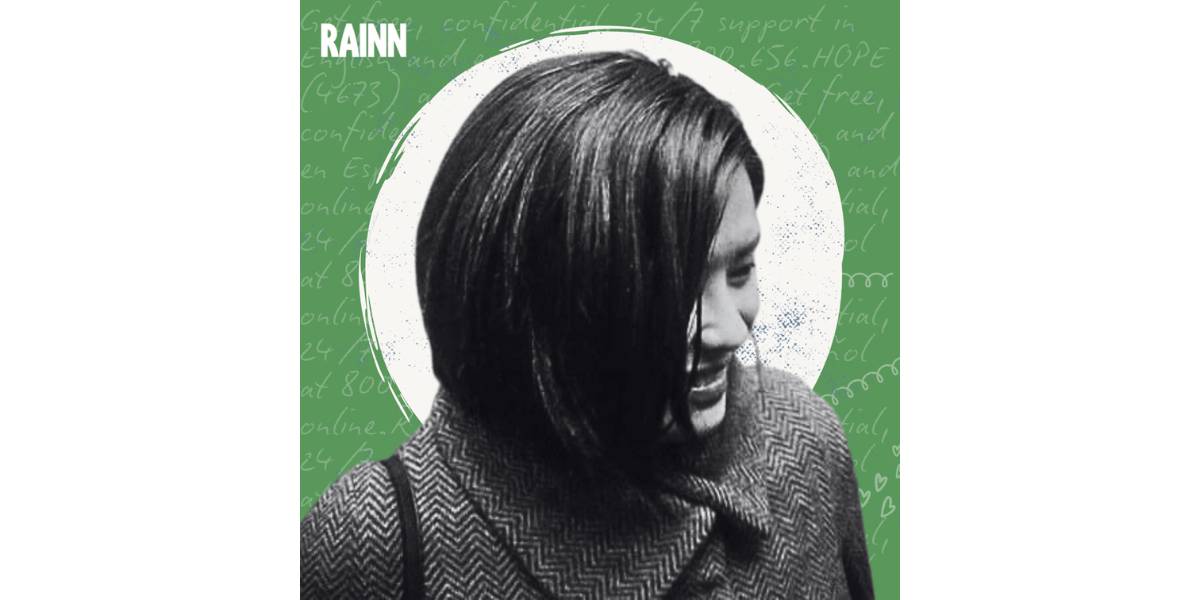
Pei (she/her) was only 5 years old when the sexual abuse started.
“It’s our secret game,” her teenage relative would tell her. To ensure her silence, he threatened to kill her.
“And I didn't tell anybody,” Pei said. “No one.” She took a deep breath. “I just kept trying to survive.”
When 17-year-old Pei stepped out of the train station in San Francisco, she knew she’d found her new home.
Back in Taiwan, her father had promised to send her on a summer trip before college, and true to his word, he’d given his only daughter a ticket to the one place she dreamed of going: America.
“I looked around, and I felt a hundred percent free. I felt such relief,” Pei shared. “I told myself, I’m going to have my first house here, and my future child will go to UC Berkeley.”
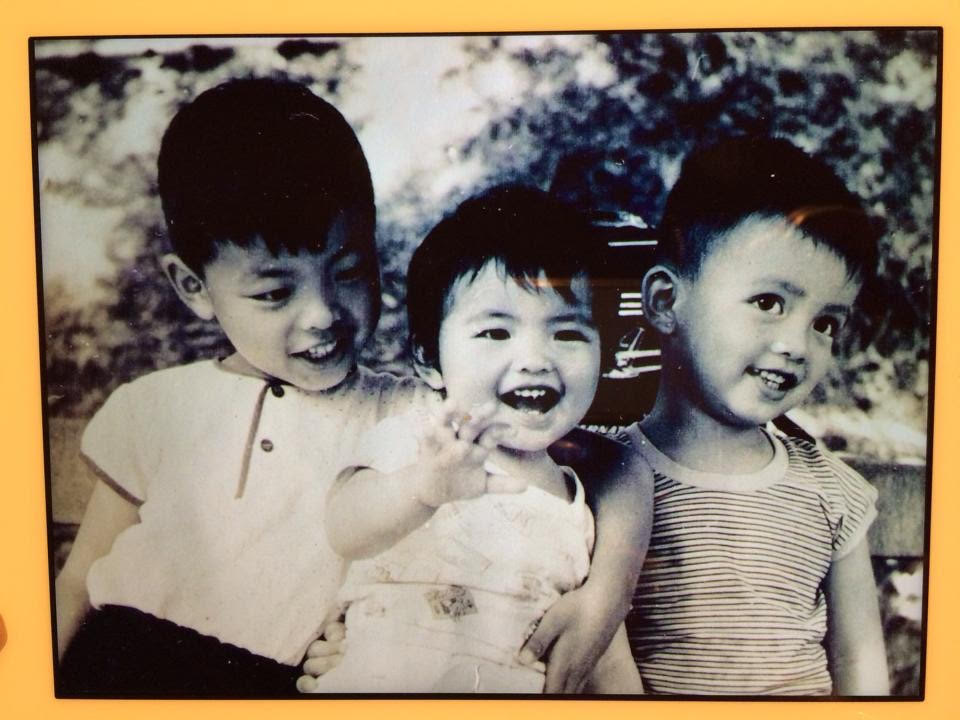
Eagerly welcomed by her Berkeley-based relatives, she built a life far away from the pain of her past. She painted and forged a thriving career; she fell in love and had a son. Yet the terrible secret clung to her.
“The longer I carried it and the older I got, my secret became bigger and heavier,” Pei said. “The shadow became bigger.”
As a child, Pei experienced regular anxiety attacks which were misdiagnosed as asthma. “There were times I couldn't breathe,” she said, “but you learn the survival skills that help you pass through those moments.”
Until one night, at age 54, 49 years after the abuse began, her finely honed survival skills failed her.
“It was 2:00 in the morning, and I couldn’t catch my breath,” she explained. “I felt like I was going to die.”
While the household slept, she made a desperate phone call to Taiwan.
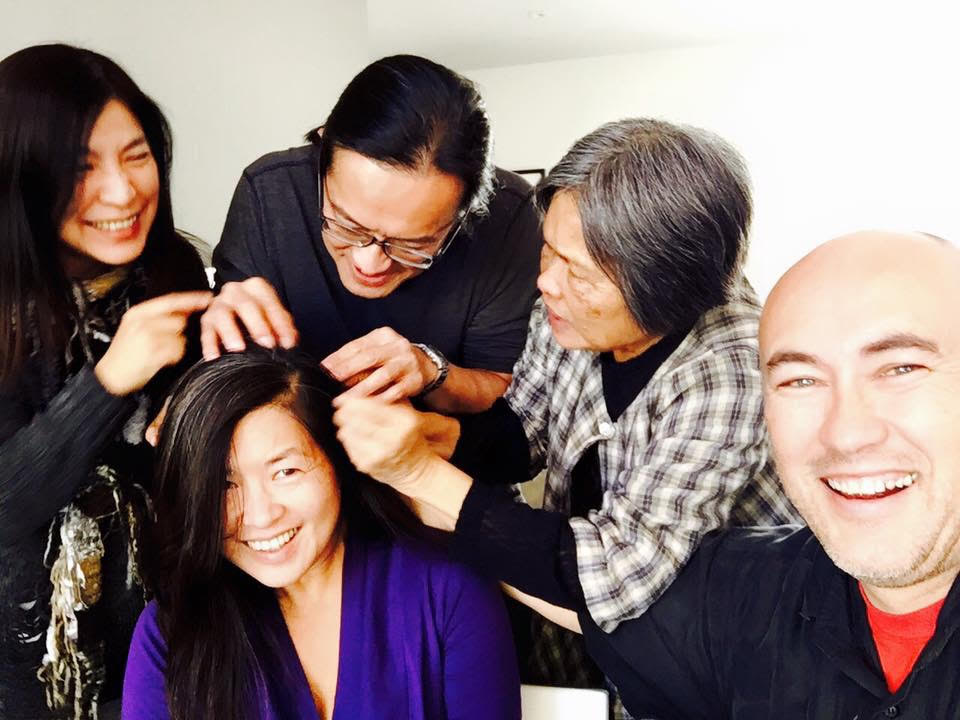
“My mom, husband, brother, and sister-in-law. My rocks for the past four years.” Photo courtesy of Pei E.
“My cousin Connie picked up the phone right away. ‘Take it easy,’ she told me. ‘I'll breathe with you. Let's breathe together.’” But even with lungs full of air, Pei couldn’t bring herself to speak.
“Instead, I started sobbing,” said Pei, “then I was crying hysterically. All I could say was, ‘Something happened to me when I was 5.’ What Connie said next changed everything for me.
“She said, ‘I think I know what you are talking about.’”
Five years older than Pei, Connie expressed certainty that she could have protected her younger cousin—if only she had revealed her own abuse by the same relative.
“But I saw light in that moment,” Pei said, her eyes fluttering closed as emotion took hold. “For me, it was:
"Oh my God. There's one person in this entire world who understands—who witnessed what happened. I'm not in the shadow all by myself."
Piecing Together the Truth
The women began piecing together their painful stories, talking until sunrise night after night. “We have to tell someone in our family,” Connie finally said.
Pei told her brother, Max, first. He was insistent: “We need to go and confront the abuser,” he said to her.
The very thought of engaging with her abuser revived the survival instincts that had protected Pei as a child. She felt incapable of making decisions. At that moment, compliance equaled safety.
“Immediately, my world just became this empty space,” Pei described. “I didn't know how to feel. I didn't know what everything meant. All I could think was, I need to survive.”
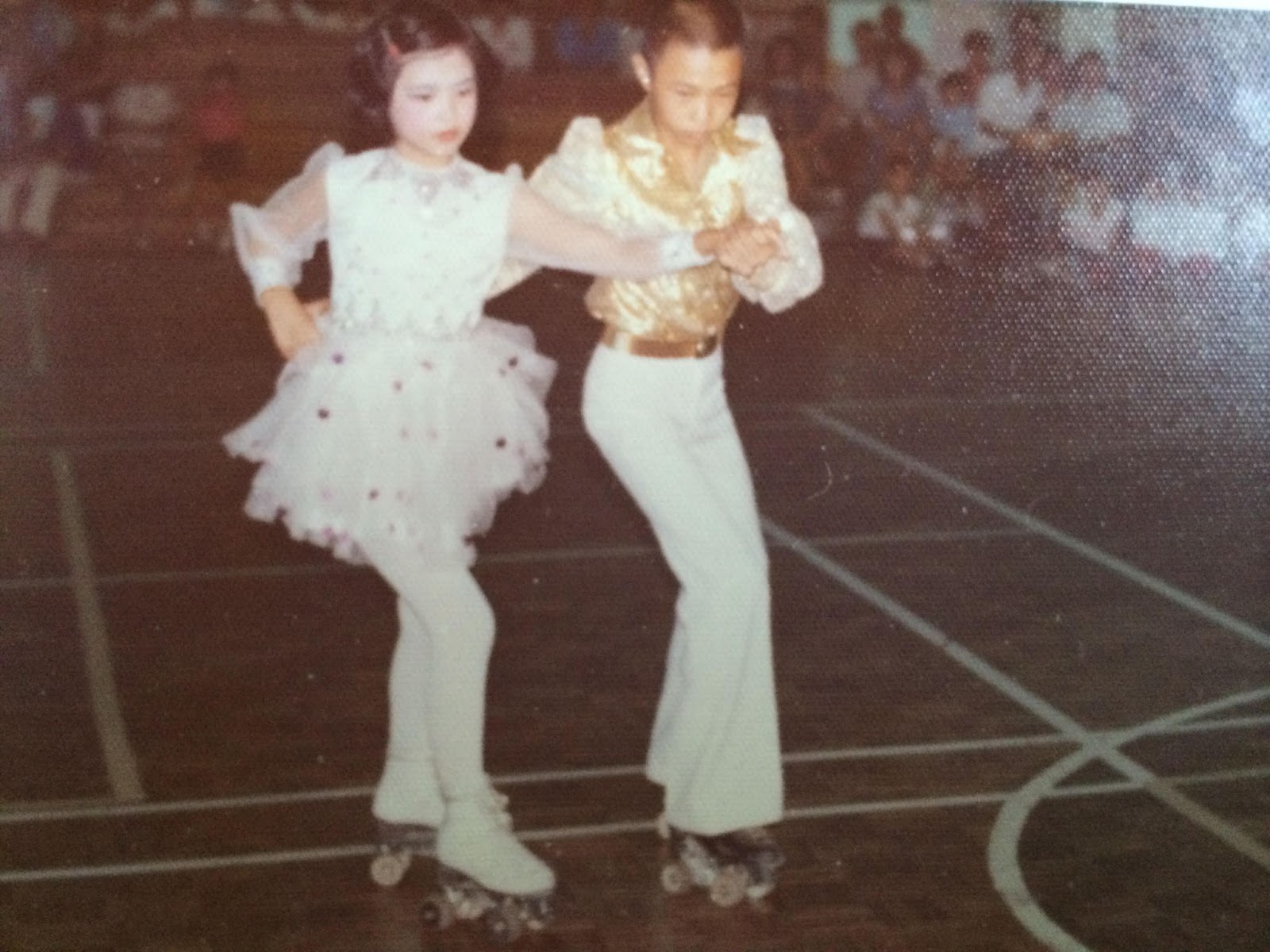
“Here I am performing with my roller skating team in elementary school in Tainan, my happy place, my happy time, after moving away from Taipei where I suffered the abuse for at least two years.” Photo courtesy of Pei.
Later, Max recounted to Pei his conversation with the perpetrator. “He told our abuser, ‘I want to talk to you about my sister Pei—but you probably already know what I'm talking about.’ And he said our relative went completely quiet, then he started crying.”
As Max read out loud the letter he’d composed, Pei and Connie’s abuser “just sobbed and sobbed and sobbed.”
Pei felt nothing.
“My brother decided we should tell Uncle, the head of the family, and ask him for advice on how we should go about things and how the family could support me and my cousin,” Pei remembered. “We felt like he had the most even, balanced mind and would be able to lead us.”
Calmly and kindly, her beloved uncle gave Pei the guidance she didn’t know she needed:
"Pei, it is time for you to transfer the pain to the person who caused you the pain."
"When I heard that, I felt like, That's an option?" said Pei. "I didn't know that was possible.”
“Next, Uncle said, ‘We need the abuser to write a letter. We need him to put it in writing and acknowledge it. Are you okay with that?’ And I said, ‘Okay.’”
Confession
“I remember the day my brother called me and said, ‘He wrote a letter. I just sent it to you. Take a look.’ I was doing my gardening, and I remember thinking, No. I'll take my time.
“It was such a bizarre moment because, all of your life, you feel like you're waiting for this moment, for the person who hurt you the most to confess—to apologize. But when that moment came, I realized, He's not relevant to my life. I didn't even care about what he had to say anymore. What he said or why didn't matter to me. I thought it did, but it really didn't.
“From that point on, I told myself, This is in my control. This has to be at my pace. I'm not going to let anyone dictate what I should do," Pei expressed.
“At that time, I was 54 years old. So, No, I thought. He can wait.”
Three days later, in the peace of her painting studio, Pei finally read the letter her childhood abuser had written.
It began:
我懊悔我的罪過,我內心的污穢不堪,更讓我心中的愧疚與責備,層層的淹沒我⋯
I regret my crime, the dirt deep in my heart. Even more so, the regret and blame, they cover me layer by layer…
Again and again, Pei read the letter, but “I didn't feel anything,” she said. “Then I started laughing because what he wrote was… I mean, it was a good letter. But to me? It was ridiculous.”
The relative’s apologies and admissions of guilt meant little to Pei, and she wrote as much to her brother:
…What he remembers, besides his shameful self-guilt while embracing and accepting my family’s love and generosity, was happy times, and road trips.
What I remember was dark, silence, and fear…
“I realized, After 49 years, I don't need his apology. I'm moving on. I'm focusing on myself.”
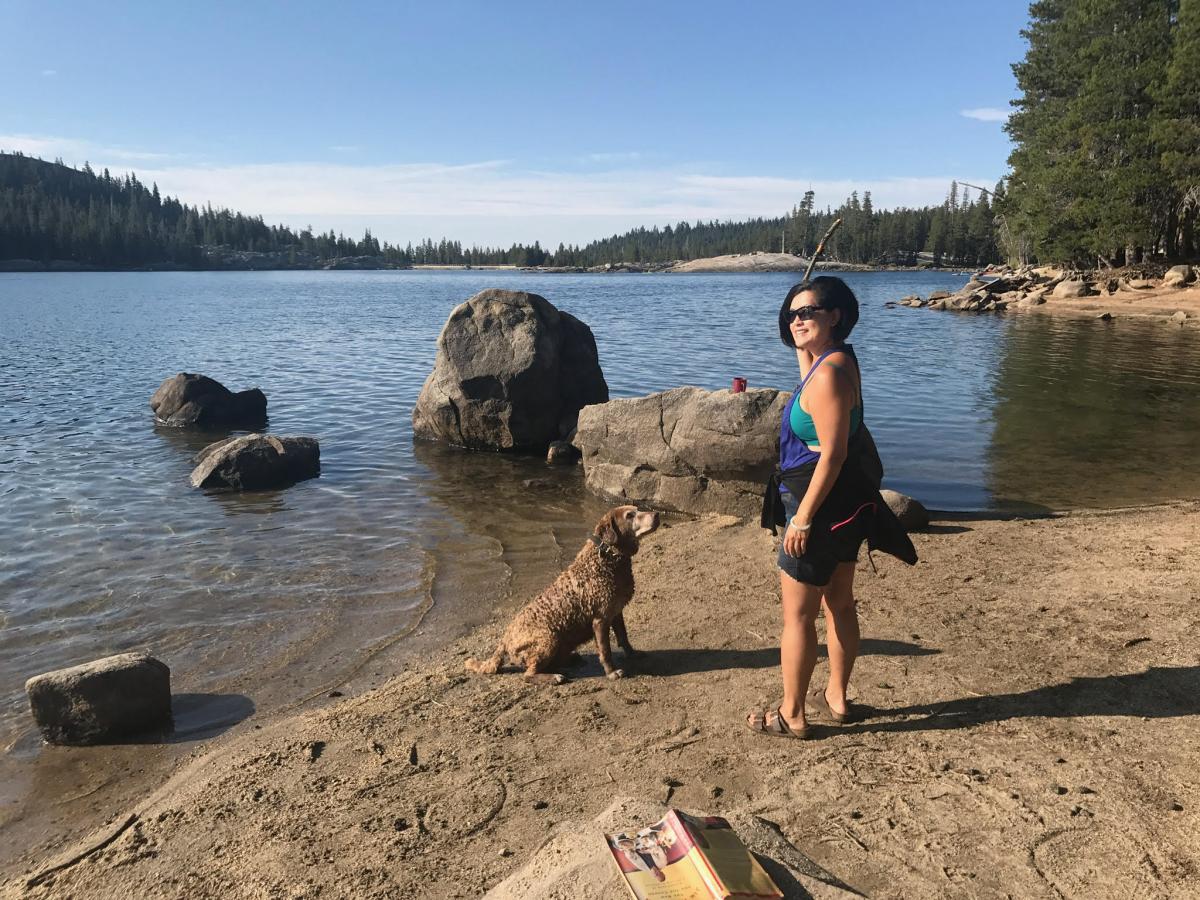
A World of Difference
One year after coming forward with her story, Pei became a member of the RAINN Speakers Bureau.
“I wanted to focus on others and focus on what I can do for myself,” she shared.
“RAINN is so helpful. We survivors learn from each other. And having that makes the whole world a different world to me.”
She keeps a photograph of herself, taken before age 5—before she endured repeated sexual abuse at the hands of a family member. “In this picture, I’m laughing and being goofy. Being weird—like a normal kid.”
Despite years of hurt and fear, “Today, I would describe myself as fearless,” said Pei. “I still question myself from time to time, but more and more, I know who I am.”
And the vision she had at 17? Her dream of a house near the Bay and a child at UC Berkeley? Pei laughed. “He went to Berkeley!”
One in 9 girls and 1 in 20 boys under the age of 18 experience sexual abuse or assault.
If you need someone to talk to, contact RAINN. Our support specialists provide free, confidential, 24/7 support in English and Spanish.
Call 800.656.HOPE (4673) or Chat Live at hotline.RAINN.org.